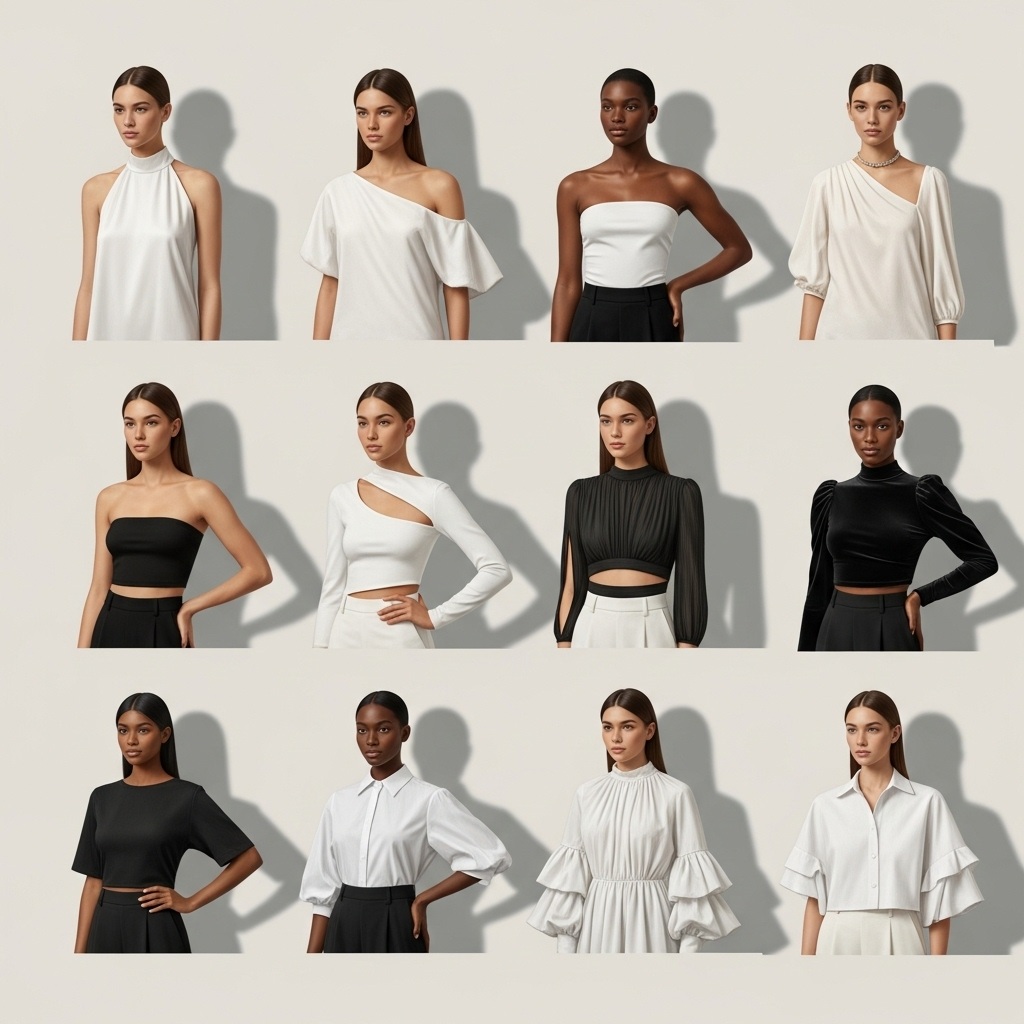12 Trendy Types of Modern Sleeves (2025 Fashion Sleeve Guide)
Fashion is constantly changing, yet sleeves remain one of the most expressive parts of any garment. They can make a dress look elegant, a blouse appear edgy, or a top feel soft and playful. This guide explores 12 trendy types of modern sleeves, their features, fabric choices, variations, and history, along with practical styling tips and a comparison table between slashed and cut-out sleeves.
Features & Fabric Choices
Sleeves aren’t just about covering arms—they define silhouette, comfort, and character. Each sleeve type carries unique design possibilities depending on fabric texture, fit, and movement.
| Sleeve Type | Best Fabric Choices | Typical Features | Occasion |
|---|---|---|---|
| Halter | Satin, Chiffon, Jersey | Backless, neck-tied, shoulder-exposing | Evening wear, summer dresses |
| Asymmetrical | Silk, Crepe, Organza | Uneven or diagonal cut | Party wear, high fashion |
| Strapless | Brocade, Satin, Denim | No straps, structured bodice | Formal wear |
| Spaghetti Strap | Silk, Cotton, Linen | Thin straps, minimalist | Casual & summer wear |
| One-Shoulder | Velvet, Crepe, Lace | Single shoulder strap, dramatic silhouette | Cocktail, gala events |
| Tube Style | Lycra, Stretch cotton | Fitted cylindrical top | Streetwear, casual |
| Cut-Out | Mesh, Leather, Cotton | Geometric holes or patterns | Trendy or bold fashion |
| Slashed | Velvet, Brocade | Long decorative slits | Vintage-inspired, historical |
| Double-Layer | Organza, Satin, Mesh | Two fabric layers, dimensional | Modern couture |
| Elasticized | Jersey, Cotton, Knit | Stretchy or ruched edge | Everyday & activewear |
| Tiered | Chiffon, Silk, Organza | Layered ruffles | Romantic & boho styles |
| Full Sleeve | Silk, Linen, Satin | Full arm coverage | Formal & modest fashion |
| Half Sleeve | Cotton, Jersey | Mid-arm length | Every day or office wear |
DEFINITIONS and Typical Features
Below are detailed explanations and typical characteristics of each sleeve, including variations, fabric tips, and historical insights where relevant.
1. Asymmetrical Sleeve
An asymmetrical sleeve features an uneven design, often exposing one shoulder or part of the arm. It creates a dramatic and modern silhouette.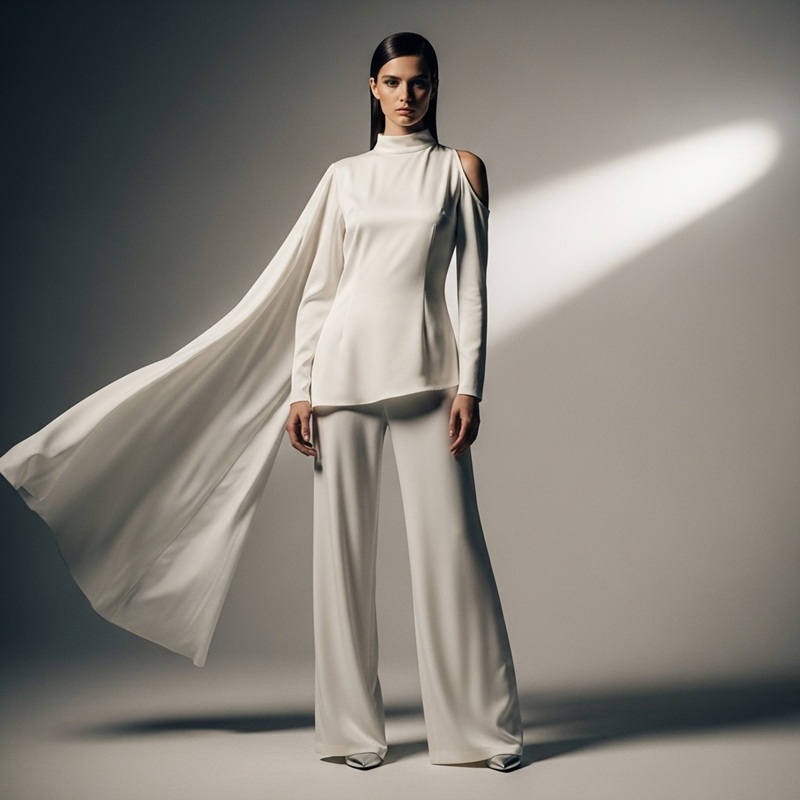
| Variation | Fabric Tips | History |
|---|---|---|
| Single-shoulder sleeve | Best in silk or crepe for fluidity | Popular in the 1970s disco and revived in the early 2020s |
| Angular-cut sleeve | Works well with structured fabrics | Symbol of modern art-inspired fashion |
2. Detachable Sleeve
These sleeves can be removed using buttons, zippers, or hooks. Perfect for transforming a look from formal to casual in seconds.

| Variation | Fabric Tips | History |
|---|---|---|
| Zipper-detached | Use cotton blends for easy handling | Rose in popularity with modular fashion in 2018 |
| Button-detached | Great with structured blazers | Reflects the sustainability and reusability trend |
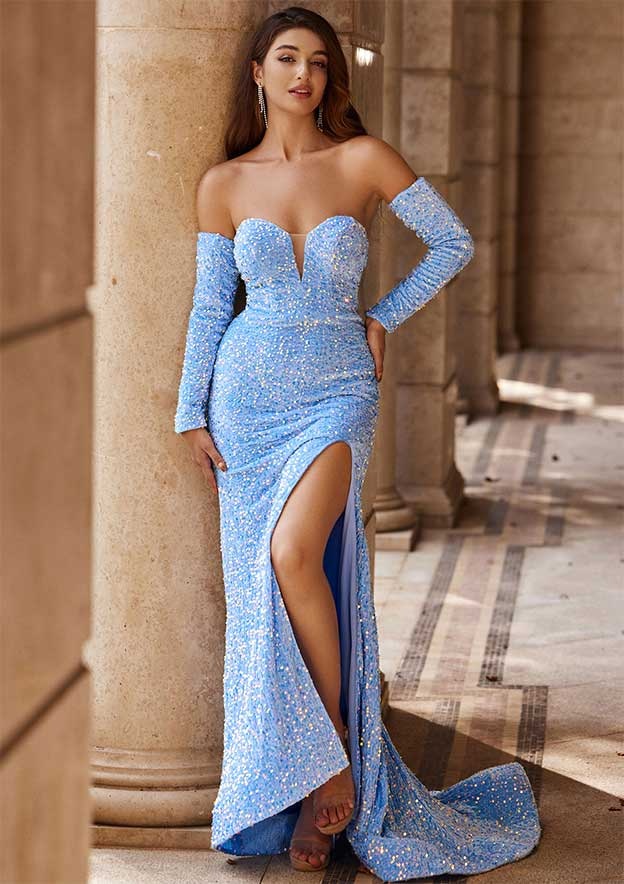
3. Halter Sleeve
A halter sleeve loops around the neck, exposing the shoulders and back while supporting the front bodice.
| Variation | Fabric Tips | History |
|---|---|---|
| Classic Halter | Use satin or chiffon for the drape | 1930s Hollywood glamorized this style |
| Cross-back Halter | Jersey or Lycra for movement | Revived in the 2000s and dominant in the 2025 summer fashion |

Historical Timeline of Popularity
| Era | Cultural Context |
|---|---|
| 1930s–1950s | Associated with Golden Age Hollywood and evening gowns |
| 1970s | Symbol of feminine freedom and disco expression |
| 1990s–2000s | Returned in Y2K fashion and casual wear |
| 2020s–2025 | Redefined in sustainable fabrics and inclusive sizing |
4. Strapless Sleeve
Completely bare shoulders with a fitted bust area. Often boned or structured for support.
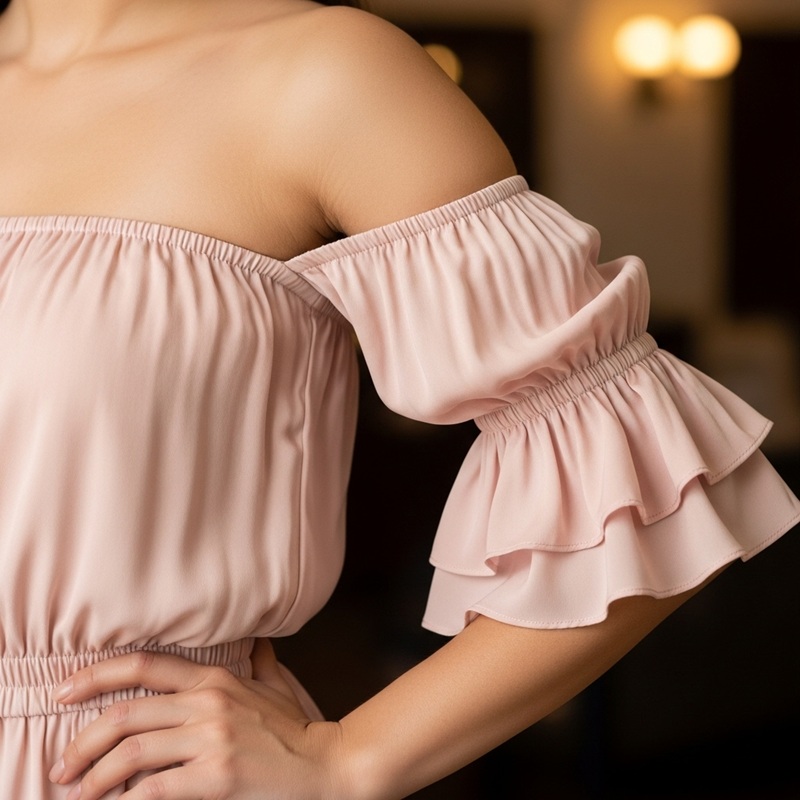
| Variation | Fabric Tips | History |
|---|---|---|
| Classic Tube | Structured satin or brocade | Originated in the 1930s, evening wear |
| Modern Strapless | Stretch fabrics for comfort | Reinvented by minimalists in the 2020s |
5. Spaghetti Strap Sleeve
Minimalist straps resembling spaghetti noodles—perfect for a delicate look.
| Variation | Fabric Tips | History |
|---|---|---|
| Straight neckline | Silk or cotton blends | Popularized in the 1990s, summer wear |
| Cowl neckline | Satin or viscose | Returned with the 2020s minimalist trends |
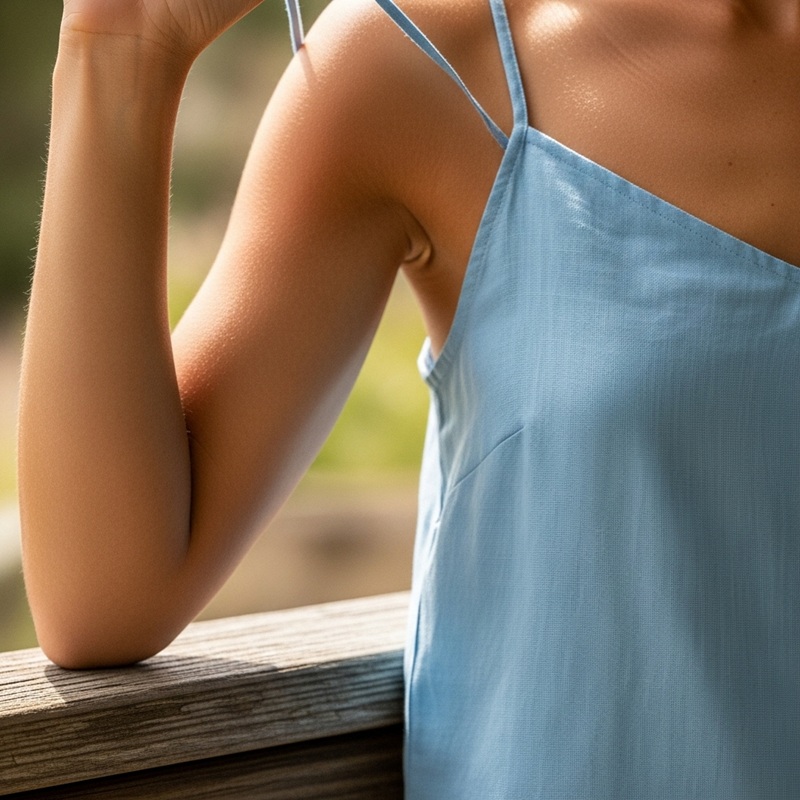
6. One-Shoulder Sleeve
A single shoulder strap gives asymmetry and sophistication.
| Variation | Fabric Tips | History |
|---|---|---|
| Diagonal cut | Use crepe or velvet | Found in ancient Greek attire |
| Draped one-shoulder | Chiffon or organza | Modernized for runway couture |
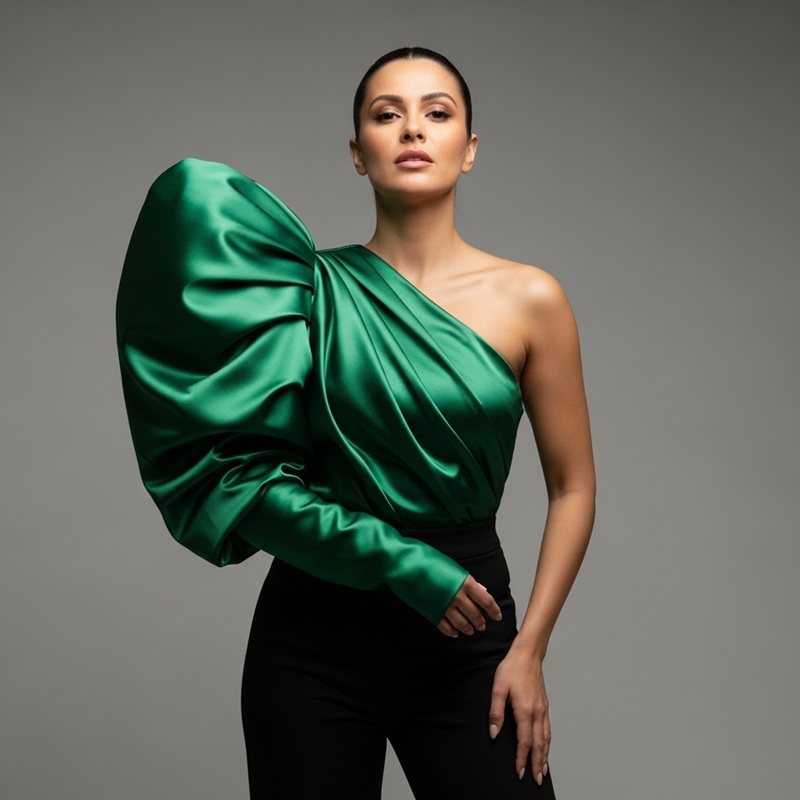
7. Tube Style Sleeve
The tube style forms a cylindrical fit around the arm or bodice, offering a seamless and snug structure.
| Variation | Fabric Tips | History |
|---|---|---|
| Fitted Tube | Use stretch cotton | Originated in the 1980s, urban fashion |
| Loose Tube | Lightweight knit | Favored for street and casual wear |
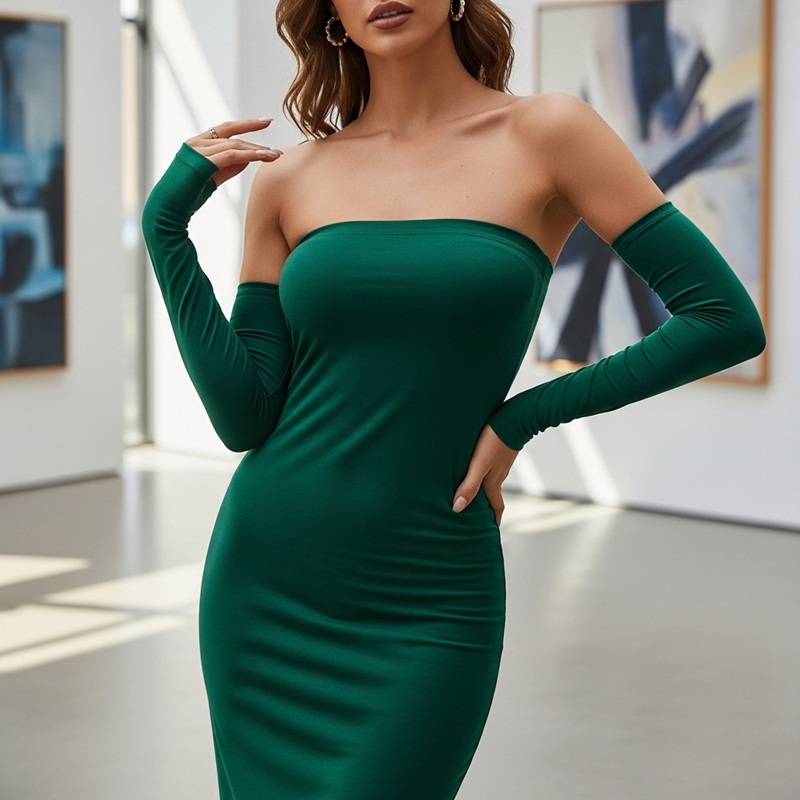
8. Cut-Out Sleeve
These features deliberate openings—geometric, circular, or abstract—adding an edgy or modern touch.
| Variation | Fabric Tips | History |
|---|---|---|
| Shoulder cut-out | Jersey, cotton | 2010s cold-shoulder trend |
| Arm-slit cut-out | Leather, mesh | 2020s runway innovation |
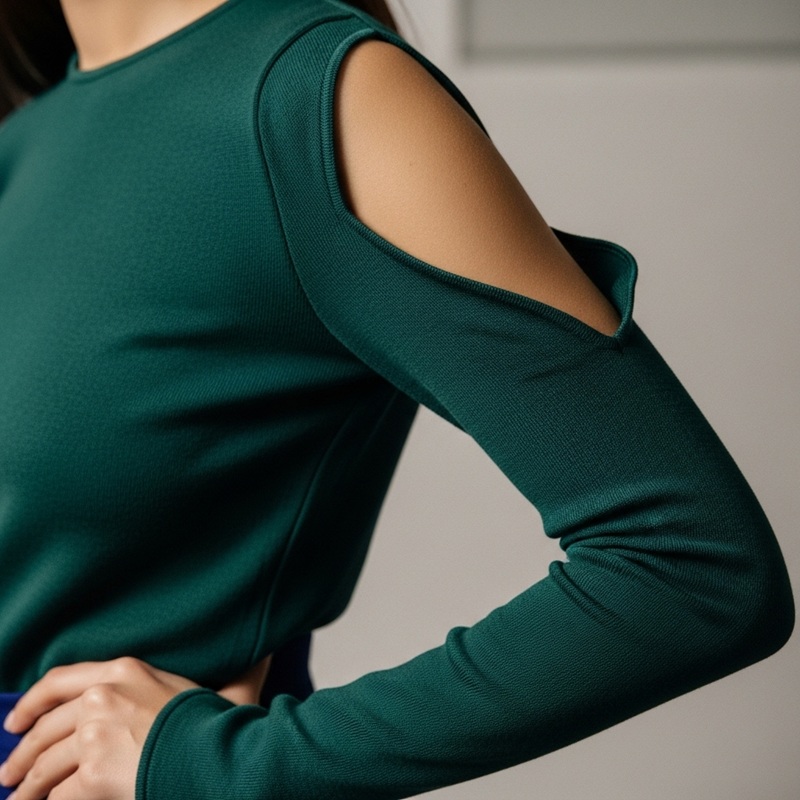
9. Slashed Sleeve
Inspired by Renaissance designs, the slashed sleeve has long vertical openings revealing the fabric beneath.
| Variation | Fabric Tips | History |
|---|---|---|
| Ribbon-laced slashes | Velvet or brocade | 15th-century European nobility |
| Open slits | Silk or satin | Romanticized by theater fashion |
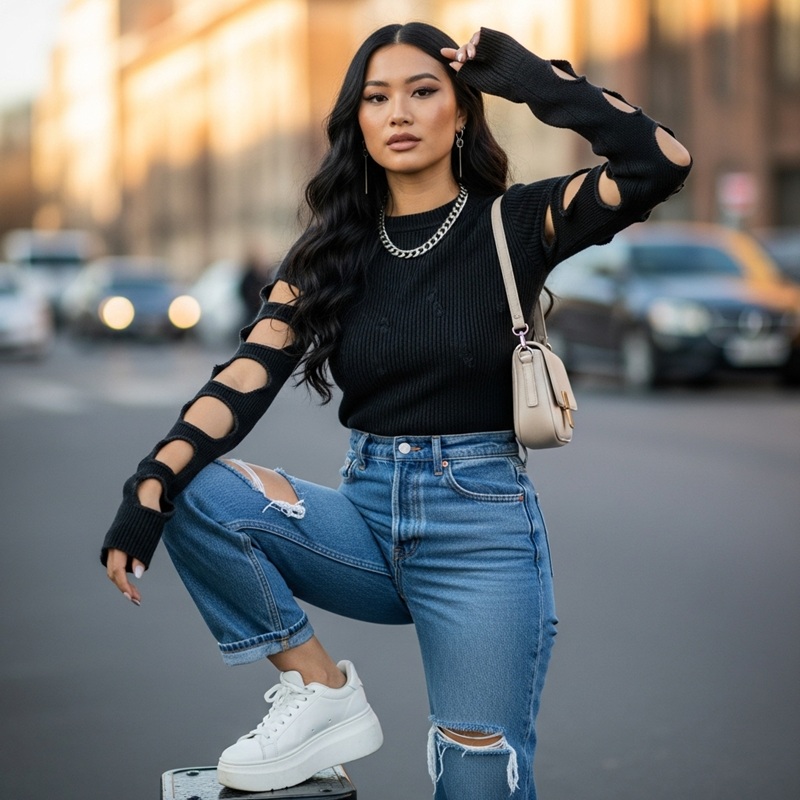
Sleeve Comparison Table: Cut-Out vs. Slashed Sleeve
| Feature | Cut-Out Sleeve | Slashed Sleeve |
|---|---|---|
| Design Intent | Geometric or modern holes for style | Decorative vertical openings revealing fabric |
| Cultural Origin | Contemporary, futuristic | Renaissance European fashion |
| Fabric Type | Leather, mesh, jersey | Velvet, satin, brocade |
| Styling Appeal | Bold, youthful, edgy | Romantic, vintage-inspired |
| Occasion | Parties, fashion-forward looks | Historical or couture themes |
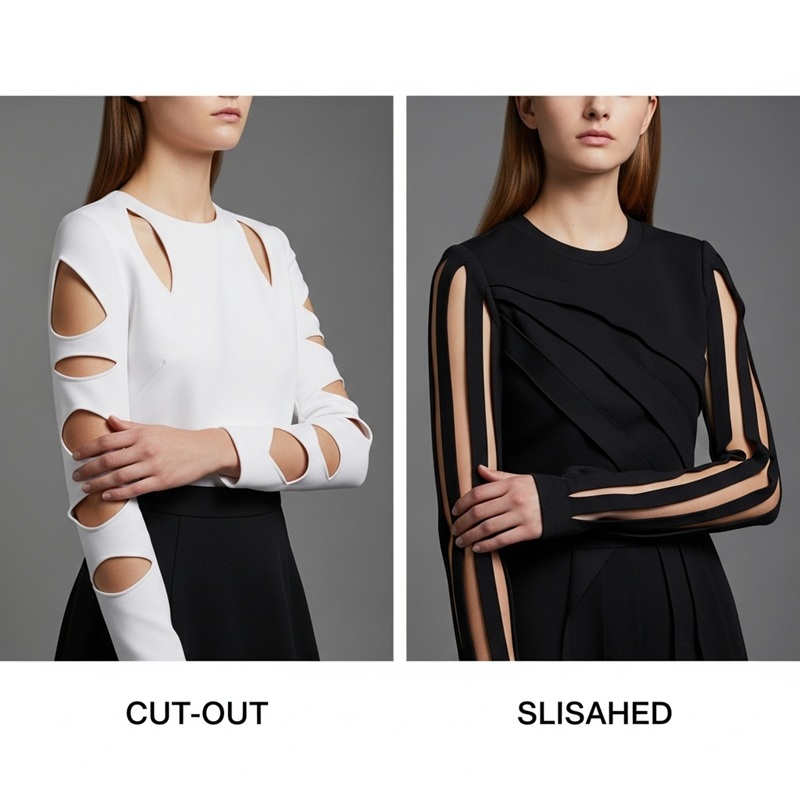
10. Double-Layer Sleeve
Two overlapping layers for added depth and texture.
| Variation | Fabric Tips | History |
|---|---|---|
| Transparent overlay | Organza or chiffon | Inspired by haute couture layering |
| Dual-color layer | Satin or lace mix | Popular in 2010s–2020s fusion fashion |
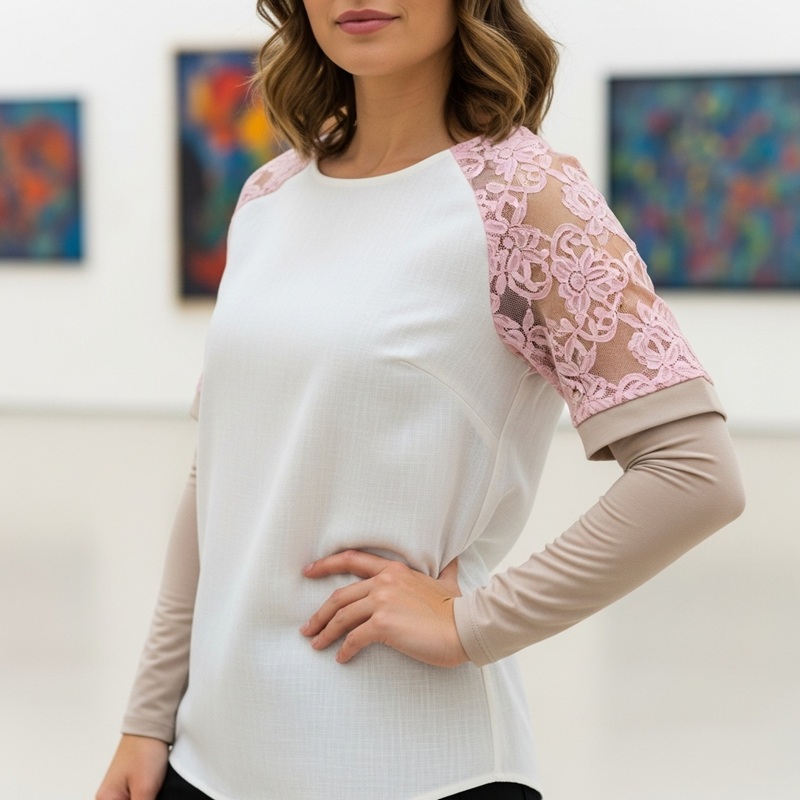
11. Elasticized Sleeve
Stretchy cuffs or ruched hems allow flexibility and comfort.
| Variation | Fabric Tips | History |
|---|---|---|
| Puff elastic | Jersey or linen | Common in the 1980s children’s fashion |
| Gathered elastic | Cotton or silk | Modern comfort wear staple |
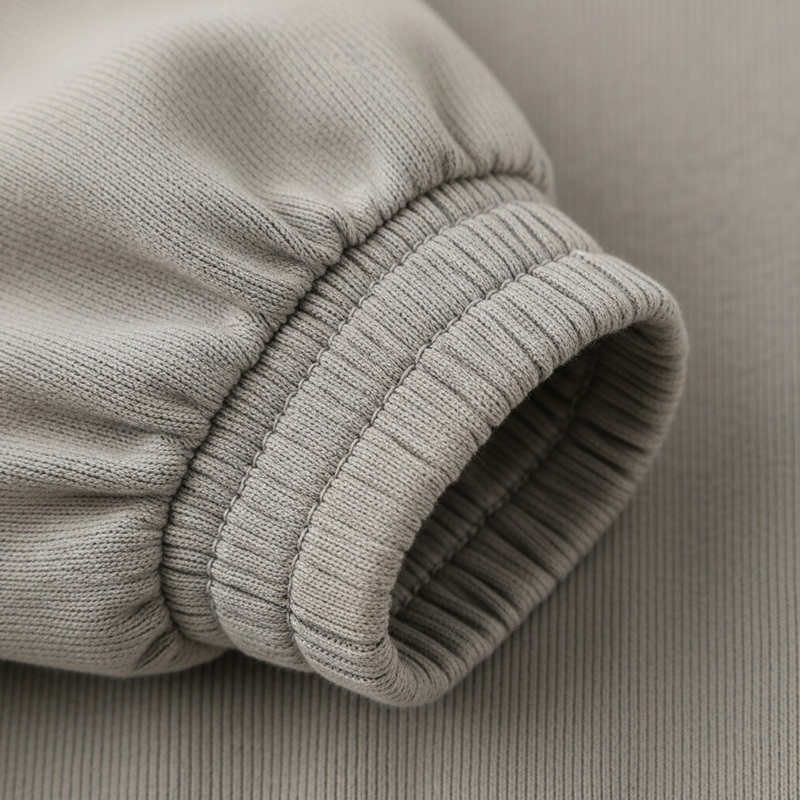
12. Tiered Sleeve
Made of multiple fabric layers cascading down the arm. Romantic and voluminous.
| Variation | Fabric Tips | History |
|---|---|---|
| Triple-tier | Chiffon or silk | Victorian inspiration |
| Asymmetric-tier | Organza | Used in the 2020s bohemian collections |

Which Is Better: Full Sleeve or Half Sleeve?
| Feature | Full Sleeve | Half Sleeve |
|---|---|---|
| Coverage | Complete arm coverage | Partial arm coverage |
| Comfort | Ideal for colder climates | Breathable for warm weather |
| Formality | Suited for professional or modest looks | Works for casual and semi-formal wear |
| Styling Options | Great with jackets or gowns | Ideal for t-shirts and tops |
| Trend Outlook 2025 | Timeless with modern fabrics | Dominant in minimalist streetwear |
Verdict:
Neither is universally “better.” The best choice depends on climate, fabric, and purpose. Full sleeves lean toward elegance, while half sleeves highlight ease and modern simplicity.
The Art and Future of Modern Sleeves
Fashion has always used sleeves as a reflection of culture, creativity, and identity. From the opulence of slashed sleeves to the sleek minimalism of cut-out designs, every style tells a story of evolution. Modern sleeve trends focus on adaptability and personality, blending structure and softness across cultures.
Designers today see sleeves as sculptural tools—expressing movement, emotion, and sustainability. Whether detachable for versatility or tiered for romance, sleeves remain key to shaping silhouettes and fashion stories.
Final Takeaway
Sleeves are not just fabric—they’re fashion’s silent storytellers.
From halter to elasticized, each one speaks of comfort, art, and individuality.
FAQs About Modern Sleeve Types
1. What are the top modern sleeve trends in 2025?
Cut-out, asymmetrical, and detachable sleeves dominate, merging comfort with innovation.
2. What’s the difference between full and half sleeves?
Full sleeves cover the entire arm; half sleeves stop mid-arm, ideal for hot climates.
3. Which fabrics suit modern sleeve designs?
Lightweight fabrics like chiffon, cotton, and satin for flowy styles; structured fabrics like brocade or leather for defined sleeves.
4. Are traditional sleeve styles still relevant?
Yes, classic sleeves like slashed or tiered are reinterpreted with modern tailoring and fabrics.
5. How can I pick a sleeve that flatters me?
Focus on proportion—tiered adds volume, halter exposes shoulders, and elasticized offers comfort and flexibility.



